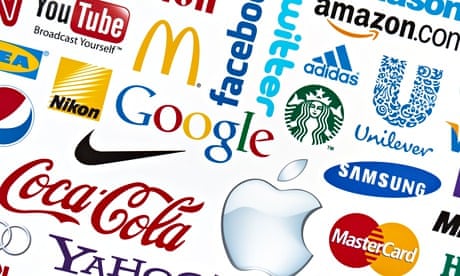Akram Atallah, president of the global domains division at the Internet Corporation for Assigned Names and Numbers (Icann), which is behind an initiative to release a wave of new generic top-level domain names (gTLDs) onto the web, says he's looking forward to a lot of innovation over the coming months.
Until recently, gTLDs such as .com and .net numbered just 22, alongside the 300 or so country codes. That's set to expand to well over a thousand this year, with the first top-level domains having already been released – some of which are in non-Latin languages for the first time.
Atallah admits that a lot of the discussion was "hijacked" by talk of trademark and intellectual property rights. While brand protection online is absolutely critical for companies of all sizes, the implications of these new domains go far beyond such issues.
"When the programme was being developed, it was more the legal teams we were seeing. We didn't have participation from the marketing teams," he admits. But now, he says, that's changing, with many brands starting to view domains as a digital asset, as a route to driving forward their online strategy.
Atallah doesn't want to name names but he says that one presentation which caught his eye was that of a luxury goods company which had said it planned to use its .brand name to communicate the authenticity of its site. Brands are using new domains in both an innovative and a defensive way, he notes.
Ben Maynard, managing director and chair of the EMEA technology practice at global PR and communications firm Burson-Marsteller, says awareness of the gTLD programme among CMOS is "pretty low".
"Brands run the risk of being left behind," he warns. "The issue seems to fall between camps: on the one side, it's a legal issue; on the other it's marketing; for others, it's about tech."
He stresses that the profundity of Icann's move for consumers in emerging markets, who are coming online for the first time and will soon be able to access top-level domains in their native languages. Companies such as Philips, for instance, have applied for .philips in Chinese script.
"Some of the brands have secured a domain but are still working out what to do with it," he adds.
This is why Jennie-Marie Larsen decided a couple of years ago to set up Domain Diction, which she says is the only marketing consultancy dedicated to this issue.
Larsen points out that brand strategies vary wildly – from attempts to "tie up" resellers or identify bona fide subsidiaries, to the desire for easier web navigation, to bizarre or niche names which serve a very specific community. The possibilities are endless, she says.
"Some will really come out swinging with this, and critical mass could lead to genuine behaviour change," she says. "Google's not coming out and saying it, but they've invested hundreds of millions, as has Amazon."
David Green, head of global digital marketing at KPMG, which applied for the .kpmg suffix, has also been forthright about the implications of this new wave of gTLDs. He likens the changes to previous industrial revolutions, making the point that top-level domains are not just web addresses, but "massively scalable" databases, which could be used for industrial-scale applications.
Sam Breunig, associate director at another of the "Big Four" accountancy firms, Deloitte, leads its global digital channels team and has been involved with the firm's .deloitte application. He admits that there was a desire to be seen to be "shaping the trends rather than reacting" to them.
"We expect tangible benefits to come of it," he says, while admitting that the impact on the organisation's bottom line will be difficult to measure. He says an early advantage of the decision has been to force Deloitte to take a more "thoughtful" approach to domain name management.
Breunig believes companies will use new domains alongside more traditional ones, but that the emerging trend of branded or "frankly more useful" TLDs will eventually lead to a slow fade of the more old-school varieties.
"Amazon will be very interesting to watch," he adds. "The impact will not only be huge for them, but it could affect the rate of adoption."
Meanwhile, Carolin Silbernagl, co-founder of a new .hiv domain, which has seen pre-registrations for secondary domains from the likes of Levi Strauss and the MTV Staying Alive Foundation, agrees with his desire for the initiative to bring about "a positive shift for domain name portfolio management".
"At the moment, broader portfolios have been built up at companies mainly for reasons of legal brand protection," she says, while urging marketers to consider new domains as a means to experiment, to push boundaries, and to enhance online customer experience.
Lucy Fisher is a freelance journalist specialising in media, marketing and technology
Get more articles like this sent direct to your inbox by signing up for free membership to the Guardian Media Network – this content is brought to you by Guardian Professional.

Comments (…)
Sign in or create your Guardian account to join the discussion